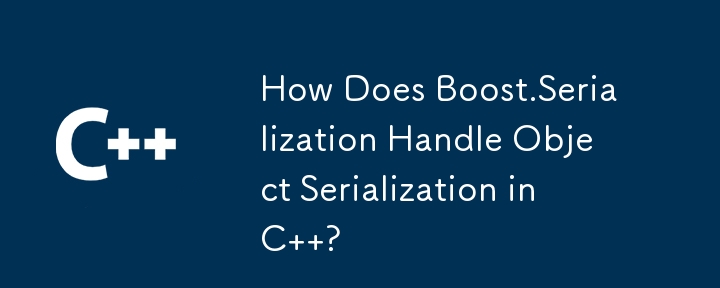
C 中的对象序列化
序列化允许将对象转换为字节数组,从而实现它们的传输和重新创建。与 Java 不同,C 不为此过程提供固有机制。然而,Boost 等库提供了全面的解决方案。
Boost 序列化 API 有助于将对象转换为字节数组。考虑以下代码片段:
#include <boost/archive/binary_oarchive.hpp>
#include <boost/archive/binary_iarchive.hpp>
class gps_position {
public:
friend class boost::serialization::access;
template <class Archive>
void serialize(Archive &ar, const unsigned int version) {
ar °rees;
ar &minutes;
ar &seconds;
}
int degrees;
int minutes;
float seconds;
gps_position(){};
gps_position(int d, int m, float s) :
degrees(d), minutes(m), seconds(s) {}
};要序列化对象,请按照以下步骤操作:
std::ofstream ofs("filename.dat", std::ios::binary);
// create class instance
const gps_position g(35, 59, 24.567f);
// save data to archive
{
boost::archive::binary_oarchive oa(ofs);
// write class instance to archive
oa << g;
// archive and stream closed when destructors are called
}反序列化类似:
std::ifstream ifs("filename.dat", std::ios::binary);
gps_position g;
{
boost::archive::binary_iarchive ia(ifs);
ia >> g;
}Boost 序列化提供灵活的选项,包括对指针序列化、派生类以及二进制和文本模式的支持。 STL 容器也可以轻松处理。
以上是Boost.Serialization 如何处理 C 中的对象序列化?的详细内容。更多信息请关注PHP中文网其他相关文章!




